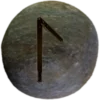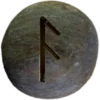Last Updated on May 1, 2025
Table of Contents


What are they?
In Asatru, a kindred forms the heart of community. It is a group of people who honor the Norse gods together. Members often gather to celebrate rituals, hold meetings, and share knowledge. These groups serve both spiritual and social roles. It offers structure, support, and belonging.
The word “kindred” echoes old notions of kin. In Asatru, it includes family by blood and those chosen by shared belief. People may call each other folk, tribe, or clan. Each term expresses close bonds and mutual respect. They build trust slowly, and thrive on honesty, loyalty, and cooperation.
Most kindreds meet for regular blóts (rituals) and sumbels (toasting rites). These events form strong communal ties. Members offer praise, make oaths, and honor the gods. These shared acts build frith—a term meaning peace and harmony. Frith (pronounced “frith,” with a short ‘i’ as in “bit”) shapes the soul of the group.
Groups vary in size and focus. Some stay small and family-based. Others welcome a wider circle. Some center on worship. Others stress scholarship, craft, or folkish identity. Despite these differences, they aim to live in alignment with the Nine Noble Virtues. These include courage, truth, honor, and perseverance.
A kindred may have a goði (male priest, pronounced “GO-thi” with ‘th’ as in “thing”) or gyðja (female priestess, pronounced “GITH-ya”). These leaders guide rites and offer counsel. Their role does not resemble a church hierarchy. Instead, they choose leaders based on merit and trust. Every voice carries weight in decision-making.
The Foundations of Loyalty
Kindreds operate by consensus, not command. This helps avoid power imbalances. Members speak freely and act with shared intent. No sacred text rules over them. Instead, lore, tradition, and ancestral values guide the group.
The sagas and Eddas provide mythic roots. Yet kindreds do not follow them blindly. These stories inspire, but do not dictate. The Hávamál (sayings of Odin, pronounced “HOW-va-mahl”) offers advice on conduct and wisdom. Still, kindreds adapt teachings to suit modern needs. ![]()
Building a kindred takes patience. Trust grows over time. Members observe how each person behaves. Do they show up? Do they keep their word? These traits matter more than appearance or charm.
Kindreds often host public rites. These events let newcomers explore Asatru. If a guest fits well, the group may invite them to join. This process avoids rash bonds. It keeps the group strong and stable.
Loyalty holds deep meaning in a kindred. But it is not blind. Members support each other while holding one another accountable. They know that honor, once lost, is hard to regain.
Many groups connect with others. They form alliances and share ideas. This network helps Asatru grow in strength and unity. It allows for larger gatherings such as Þing (assembly, pronounced “THING” with ‘th’ as in “thing”).
Culture and Language
Some kindreds use Old Norse or Icelandic terms. These include letters such as:
- Þ / þ (thorn): Pronounced like ‘th’ in “thing.”
- Ð / ð (eth): Pronounced like ‘th’ in “this.”
- Æ / æ: Pronounced like ‘eye’ in “aye.”
- Ö / ö: Similar to ‘u’ in “fur” but rounded.
- Á / á: Pronounced like ‘ow’ in “cow.”
- Í / í: Pronounced like ‘ee’ in “see.”
- Ú / ú: Pronounced like ‘oo’ in “moon.”
- Ý / ý: Pronounced like a sharp ‘ee.’
These letters help preserve ancient sounds. Their use also fosters a shared identity. Speaking or hearing them can deepen the bond between members.
Kindreds often learn together. They study rune lore, seiðr (magic, pronounced “SAY-thur”), or skaldic poetry. They also practice crafts and song. This helps pass on heritage and builds useful skills.
Feasting is central in many group gatherings. A meal shared after ritual strengthens ties. It shows gratitude and joy. Everyone contributes, and no one leaves hungry.
Kindreds teach that gods do not demand temples. The gods dwell in nature, memory, and deed. A grove, a home, or a hilltop can serve as holy space. What matters most is intent and reverence.
Important Runes
The Gebō rune often represents the spirit of kindred. This rune symbolizes gifts, exchanges, and balanced relationships, capturing the heart of kinship. Gebō stands for the balance of giving and receiving, essential in any close-knit group. Many kindreds use Gebō in rituals, marking shared commitments and mutual respect. Another Elder Futhark rune, Ehwaz, represents trust and partnership, qualities that strengthen bonds within the kindred. ![]()
Importance in Asatru
In Asatru, kindreds are essential to community and belonging. These groups offer a support network grounded in shared values and practices. Celebrations, blóts, and the passing down of stories all reflect the significance of kindred bonds. Members gain a sense of purpose and stability knowing they stand with people who honor their history and share their beliefs. The kindred reinforces a foundation of unity, trust, and spiritual support.


